Edwin Moses's Sports Injuries
Type of Sport: Track And Field
Edwin Moses's Sports Injuries Table
| Type | Area | Date | Consequences | Content | How It Happened | Recovery Duration | Rehabilitation Details | Impact On Career | Psychological Impact | Previous Injuries | Return To Competition | Severity | Treatment | Medical Staff | Long Term Impact | Preventive Measures | Competition Missed | Initial Symptoms | Re Injury Risk | Support System | Rehabilitation Location |
|---|---|---|---|---|---|---|---|---|---|---|---|---|---|---|---|---|---|---|---|---|---|
| Ankle Injuries | Left Ankle | 1984-05-09 | Sprained left ankle, causing pain and limited mobility. | The injury occurred just months before the 1984 Los Angeles Olympics, raising concerns about his ability to compete at his peak. | Twisted his ankle during a hurdle training session. | 4 weeks | Focused on ankle strengthening exercises and balance training. | Temporary setback, but he recovered in time to compete and win gold at the 1984 Olympics. | Moses remained positive and used the injury as a challenge to overcome. | None reported in the same area. | 1984-06-10 | Mild | Rest, ice, compression, elevation (RICE), and physical therapy. | Team physiotherapist and athletic trainer. | No long-term impact reported. | Strengthening exercises for the ankle and improved footwear. | Missed a few minor competitions but no major events. | Sharp pain and swelling in the left ankle. | Low, managed through preventive measures. | Support from his coaching staff, medical team, and family. | Team's training facility. |
| Back Injuries | Lower Back | 1987-03-19 | Pain and stiffness in the lower back, limiting his range of motion. | The injury occurred during a weight training session, which was part of his off-season conditioning program. | Experienced a lower back strain while lifting weights during training. | 3 weeks | Included rest, physical therapy, and modified training to avoid aggravating the injury. | Short-term impact, but he was able to return to full training and competition. | Moses handled the injury well, maintaining his focus on recovery and future goals. | None reported in the same area. | 1987-04-10 | Mild | Rest, physical therapy, and anti-inflammatory medications. | Team physiotherapist and chiropractor. | No long-term impact reported. | Improved lifting techniques and incorporated more core strengthening exercises. | Missed a few training sessions but no major competitions. | Pain and stiffness in the lower back. | Low, managed through preventive measures. | Support from his coaching staff and medical team. | Team's training facility. |
| Knee Injuries | Right Knee | 1980-07-14 | Swelling and pain in the right knee, which required immediate medical attention. | The injury occurred during a high-intensity training session in preparation for the 1980 Olympics. Although the U.S. team eventually boycotted the Moscow Olympics, Moses' injury was a significant concern at the time. | During a training session, Edwin Moses landed awkwardly after clearing a hurdle. | 6 weeks | Underwent physical therapy focused on strengthening the knee and improving flexibility. | The injury didn't have a long-term impact on his career, as he returned to competition stronger. | Moses remained focused and determined to recover quickly, using the injury as motivation. | None reported in the same area. | 1980-09-01 | Moderate | Rest, ice, compression, elevation (RICE), and physical therapy. | Team physiotherapist and orthopedic specialist. | No significant long-term impact reported. | Incorporated more strength training and flexibility exercises into his routine. | Missed several training sessions but no major competitions due to the boycott. | Immediate pain and swelling in the right knee. | Moderate, managed through preventive exercises. | Strong support from his coaching staff and medical team. | Team's training facility. |
Edwin Moses's Sports Injuries Videos
Edwin Moses Talks About Recovering From Head Injuries
I am very grateful and also appreciative of some of my friends and colleagues who are paraplegic, who have lost less, and there's no change coming for them. Having been in that situation and actually experienced what it was like, and being in a situation where there may not have been help, I'm very grateful, in fact.
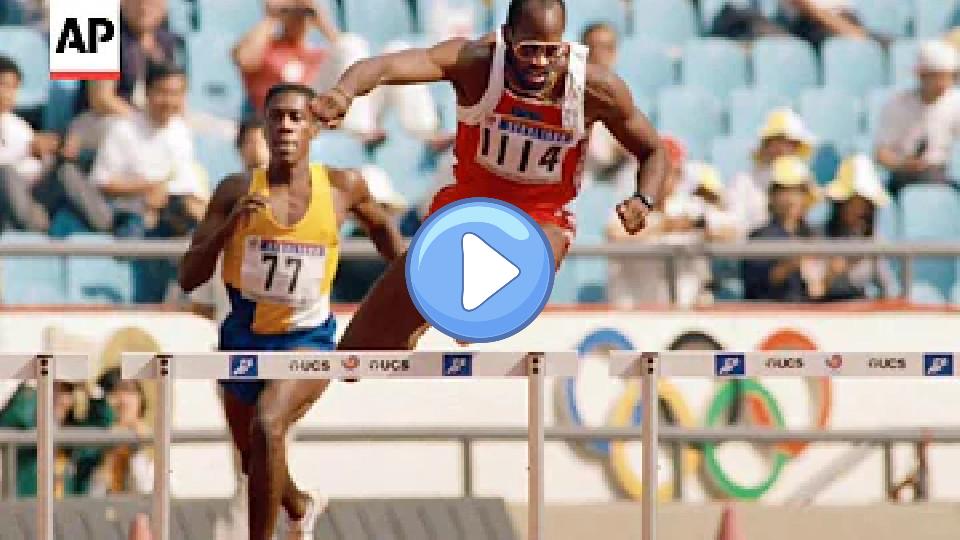
The Longest Winning Streak in Sports History: 9 Years, 9 Months, 9 Days
What if I told you that one single defeat inspired a runner to go on the longest winning streak in sporting history? This is the story of an unbroken winning streak for the record books.
On August 26, 1977, Edwin Moses from the United States placed second in the 400-meter hurdles in Berlin, Germany. This was Moses's first loss in over a year. From this moment until 1987, he maintained an unbeaten streak of 122 consecutive races against the world's greatest competition. During this decade, he won two Olympic titles, two World Championship titles, and broke the world record three times, ultimately lowering the all-time fastest performance to 47.02 seconds.
Moses's ability to hold extraordinary speeds from start to finish made him a formidable opponent. In 1985, he held all of the nine fastest times ever run in the event, with the closest competitor a full half-second behind his personal best. Moses's journey to the top was swift; he won his first real 400 hurdles race in Knoxville, Tennessee, in 1976, and quickly became a worldwide sensation.
In 1977, a stumble over the final hurdle marked his first defeat in over a year. However, just nine days later, he bounced back with a remarkable performance at the IAAF World Cup in Düsseldorf, Germany. This victory marked a key turning point from great to virtually unbeatable.
From 1977 through 1980, Moses became a huge force in track and field, but he missed the 1980 Olympics due to the United States' boycott. Despite this setback, he continued to dominate, setting a new world record of 47.13 seconds in July 1980.
In 1981, Moses went undefeated and ran under 48 seconds on six occasions. After missing the 1982 season due to illness and injury, he returned in 1983 to break his own world record again with a time of 47.02 seconds. This record stood for nine years.
Moses successfully defended his Olympic title in 1984 with a time of 47.75 seconds. His closest competitor, Danny Harris, was an 18-year-old who continued to challenge Moses over the next three years. On June 4, 1987, Harris ended Moses's winning streak with a time of 47.56 seconds.
Despite this defeat, Moses continued to dominate and won the 1987 World Championships in Rome with a time of 47.46 seconds, barely beating his rivals by just two-hundredths of a second.
Moses aimed for the 1988 Olympics, but his speed was fading, and he placed third with a time of 47.56 seconds. After receiving his first non-gold medal in a global event, Moses retired from track and field, leaving behind one of the greatest legacies in the sport's history.
Edwin Moses never avoided the world's greatest runners and never stopped his pursuit of sporting greatness.
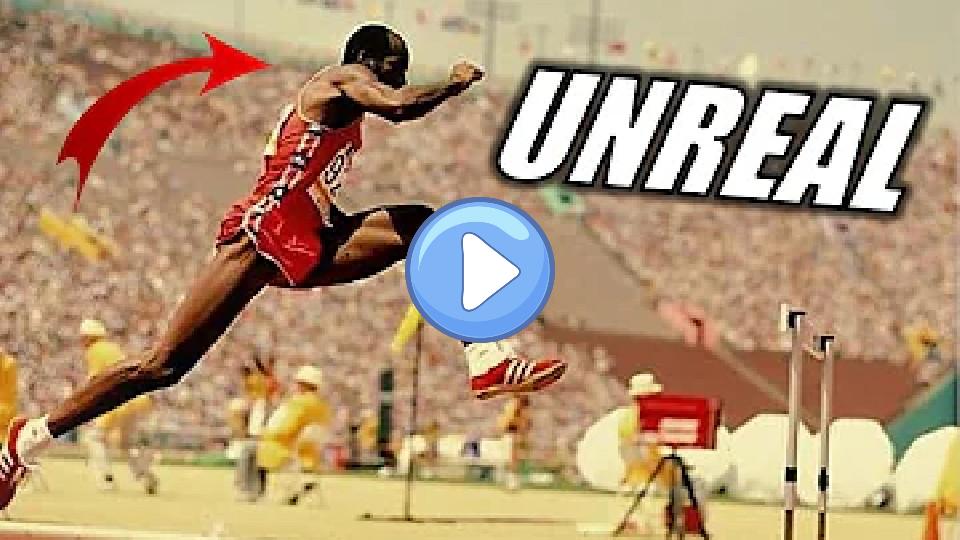
Closest Ever Finish!! Ed Moses - World Championships, Rome, 1987. 400m Hurdles.
Just past his 32nd birthday, the great Ed Moses wins his last major title by a mere 0.02 seconds. In a thrilling race, Moses battled against Harold Schmidt and Danny Harris. Despite intense pressure, Moses maintained his lead and crossed the finish line first, securing his victory. The finish was so close it required a photo finish to determine the placements, with Moses ultimately taking first, Harris second, and Schmidt third. This victory solidified Moses's dominance in the event, even at the age of 32.
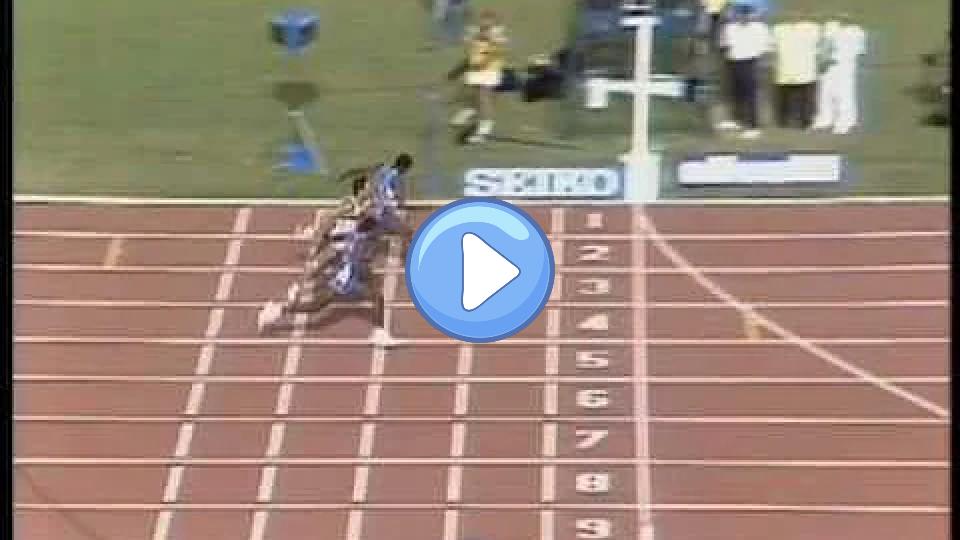
HARALD SCHMID VS EDWIN MOSES (1977) The Amazing Run, Berlin ISTAF, Berlin
Edwin Corley Moses (born August 31, 1955) is an American former track and field athlete who won gold medals in the 400 m hurdles.
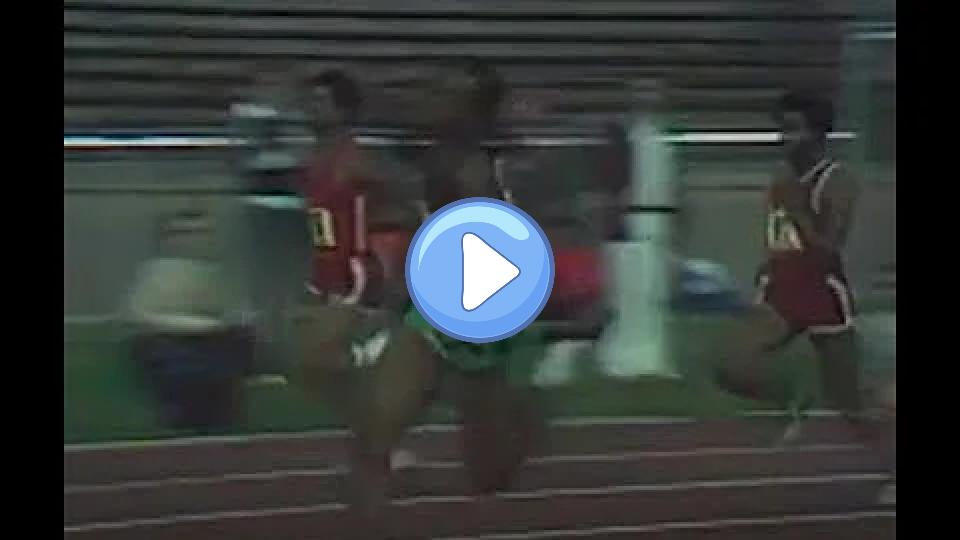
Edwin Moses: Philosophy on the 400m Hurdles
Edwin Moses describes hurdle running as a demanding discipline that requires sacrificing your body daily in training. He explains that many people become frustrated with hurdles due to the inevitable falls and injuries. The ability to get up quickly after a fall is a crucial indicator of whether someone can become a hurdler. It requires a tremendous amount of willpower, and very few 400-meter runners transition to hurdles because they struggle to manage the hurdles when fatigued. Running in pain is inherent to the event, and it takes a special person to enjoy and excel in it. Moses eventually found enjoyment and tolerance for the sport after understanding the necessary training to make it more manageable.
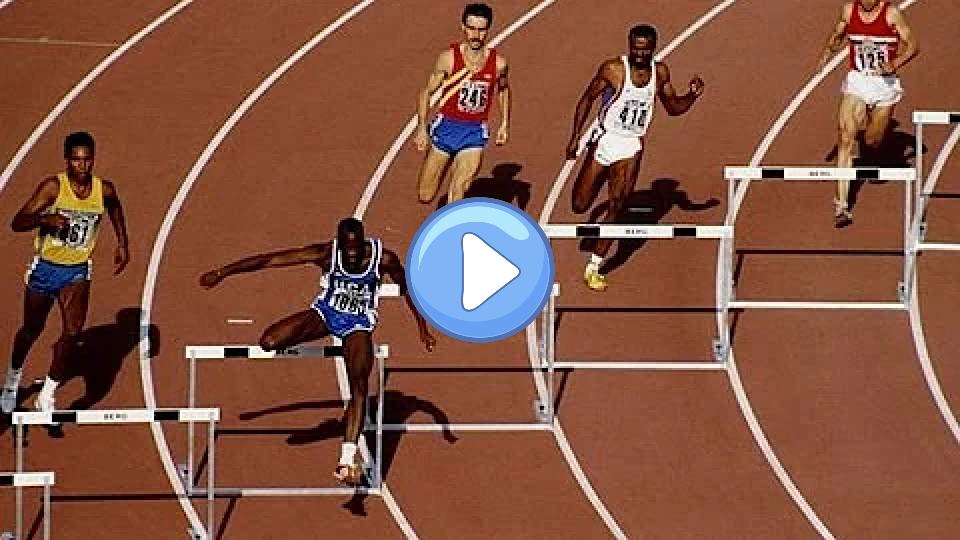
Olympic star Moses remarkably recovers from head injuries.
Olympic star Moses remarkably recovers from head injuries
COLORADO SPRINGS, Colo. (AP) — Edwin Moses turned the corner, ...
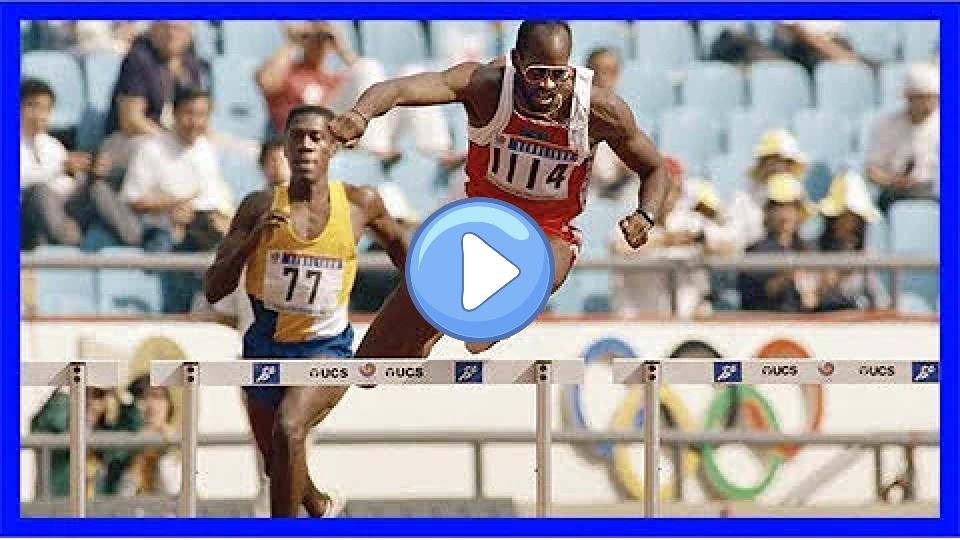
Olympic champion Edwin Moses admitted he was in disbelief while watching the men's 400m hurdles final.
Two-time Olympic champion Edwin Moses discussed the incredible 400m hurdles race where Karsten Warholm set a new world record with a time of 45.94 seconds. Warholm's performance was nearly a second faster than his previous world record, and even Rai Benjamin finished inside the old record. Moses noted that small mistakes by Benjamin early in the race, particularly clipping the tenth hurdle, cost him the win. The race was compared to historic track events and was dubbed the "race of the century."
Moses also discussed the impact of technology, such as the advanced track in Tokyo, which reportedly offers a 2% performance boost. He speculated on how historical performances might have been different with these advancements. Warholm plans to compete in the 400m flat race, but Moses highlighted the differences in pacing and stride between the hurdles and flat races.
In women's sprinting, Elaine Thompson-Herah's double victory in the 100m and 200m, with near-record times, was noted. There's speculation about her potential to break Florence Griffith Joyner's longstanding records. Finally, Moses commented on Dina Asher-Smith's decision to withdraw from the 200m due to injury, emphasizing the importance of preserving her health for future competitions.
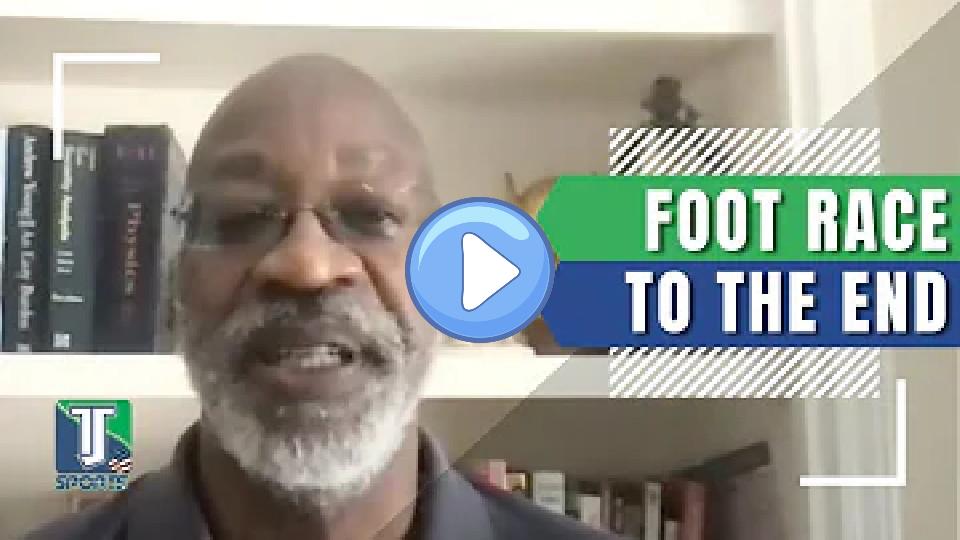
Ed Moses (WR): Koblenz, 1983. 400m hurdles.
The legendary hurdler Ed Moses set his fourth and last world record with a time of 47.02 seconds in Koblenz, Germany, on his 28th birthday in August 1983. During the race, Moses maintained a lead over Andre Phillips and David Lee, ultimately finishing first and setting a new world record.
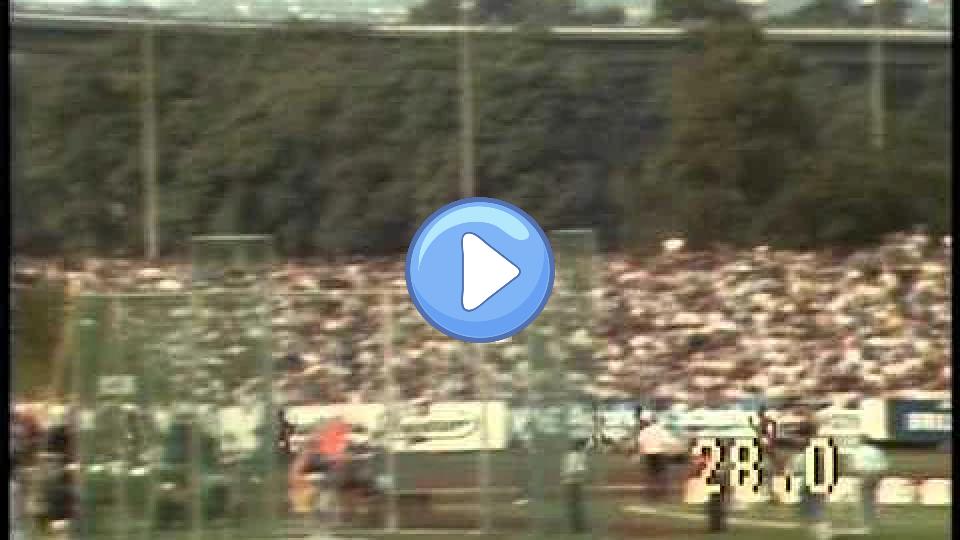
The Perfect 400m Hurdler with Edwin Moses & Félix Sánchez | Faster, Higher, Stronger
Subscribe to @olympics: http://oly.ch/Subscribe. Olympic champions Edwin Moses and Félix Sánchez explain how to run the 400...

